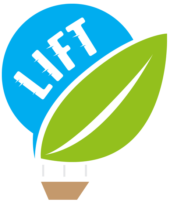Deliverables of the project are documents describing the research process, results and conclusions, prepared at distinct stages of the project.
Public deliverables of the LIFT project will be available for download as soon as they are approved by the funding agency.
The download will be available from this section of the LIFT website, as well as from the Cordis website (please locate the “Results” link at https://cordis.europa.eu/project/rcn/215945_en.html).
LIFT Project deliverables (according to due date) – the underlined ones are available for download:
31.08.2018 – D1.1 Review of the definition of the existing ecological approaches (lead partner: SRUC)
31.10.2018 – D7.1. Website of the LIFT project (lead partner: IRWiR PAN)
31.01.2019 – D7.2. First newsletter of the LIFT project (lead partner: IRWiR PAN), and the LIFT First Annual Newsletter itself
30.04.2019 – D2.1. Drivers of farmers’ up‐take of ecological approaches – a conceptual framework with a behavioural focus (lead partner: SLU)
31.08.2019 – D2.2 LIFT large-scale farmer survey questionnaire (lead partner: DEMETER)
31.08.2019 – D6.1 Legislation and political discourse about ecological farming (lead partner: SLU)
31.01.2020 – D7.3. Second newsletter of the LIFT project (lead partner: IRWiR PAN), and the LIFT Second Annual Newsletter itself
29.02.2020 – D1.2 Interactions with stakeholders on farm typology (lead partner: VetAgro Sup)
28.02.2021 – D7.4 Third newsletter of the LIFT project (lead partner: IRWiR PAN), and the LIFT Third Annual Newsletter itself
30.04.2021 – D4.1 Spatial dependencies in patterns of adoption at local and regional levels (lead partner: UNIKENT)
30.06.2021 – D1.4. LIFT farm typology developed, tested and revised, and recommendations on data needs (lead partner: JRC)
30.06.2021 – D2.3. Drivers of adoption of ecological approaches (lead partner: SRUC)
30.06.2021 – D3.1. Farm technical-economic performance depending on the degree of ecological approaches (lead partner: BOKU)
30.06.2021 – D3.2. Farmer private social performance depending on the degree of ecological approaches (lead partner: VetAgro Sup)
30.06.2021 – D3.3. Farm environmental performance depending on the degree of ecological approaches (lead partner: KU Leuven)
30.06.2021 – D3.4. Employment effect of ecological farming at the farm level (lead partner: UNIKENT)
30.06.2021 – D4.2. Socio-economic impact of ecological agriculture at the territorial level (lead partner: UNIKENT)
31.10.2021 – D6.2. Farm, farm-group and territorial level impact of policies on the adoption of ecological approaches and on the performance and sustainability of ecological agriculture (lead partner: INRAE)
31.12.2021 – D4.3. Environmental impact of ecological agriculture at the territorial level (lead partner: KU Leuven)
31.12.2021 – D6.3. Innovative public and private measures to encourage the adoption of ecological approaches and enhance the performance and sustainability of ecological agriculture (lead partner: INRAE)
31.01.2022 – D5.1. Farm level sustainability of ecological farming (lead partner: BOKU)
31.01.2022 – D5.2. Territorial sustainability of ecological farming (lead partner: UNIKENT)
30.04.2022 – D5.3. Synergies between farm level, farm-group and territorial sustainability of ecological farming (lead partner: KU Leuven)
30.04.2022 – D7.5. Fourth newsletter of the LIFT project (lead partner: IRWiR PAN), and the LIFT Fourth Annual Newsletter itself
30.04.2022 – D7.6. How to improve the adoption, performance and sustainability of ecological farming (lead partner: INRAE)
30.04.2022 – D7.7. Policy brief (lead partner: UNIBO)
30.04.2022 – D7.8. Course module on the adoption, performance and sustainability of ecological farming (lead partner: VetAgro Sup)


